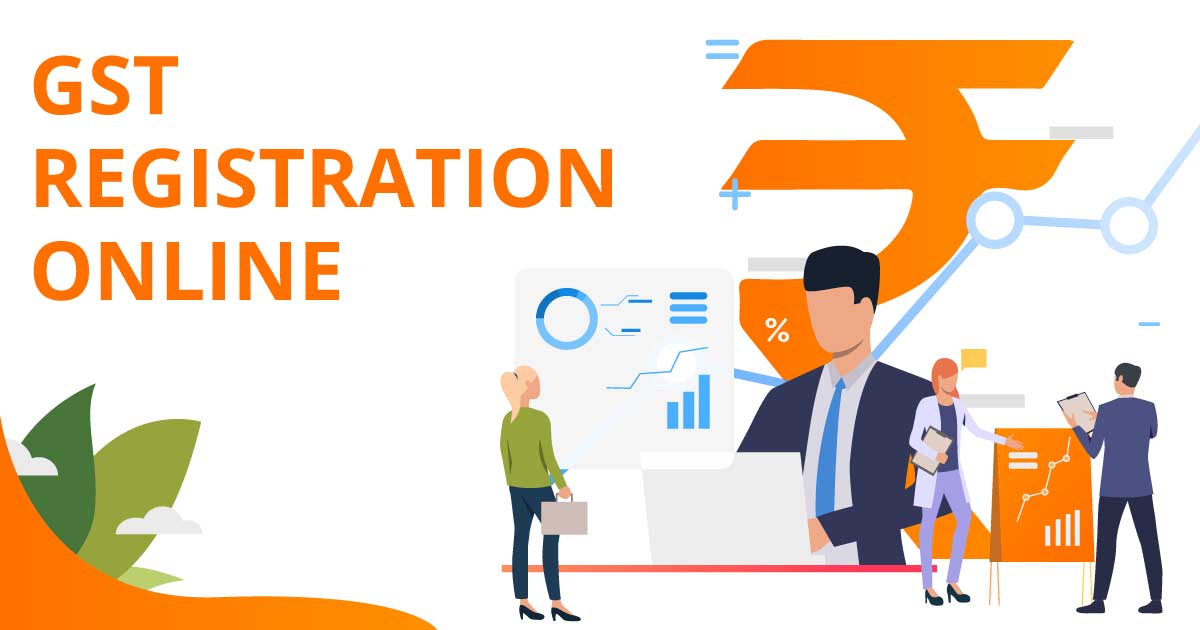From Beginning to Finish: The Ultimate Roadmap to GST Registration for Companies Seeking Financial Security
Browsing the intricacies of Item and Services Tax Obligation (GST) enrollment is a vital action for organizations making every effort for monetary security. Breaking down the roadmap into workable steps can improve the registration journey for companies looking to improve their monetary standing.
Recognizing GST Essentials
Exploring the fundamental principles of Product and Provider Tax Obligation (GST) is essential for gaining a comprehensive understanding of its implications on businesses and the economy. GST is a value-added tax imposed on most goods and services for domestic usage. It has actually changed several indirect tax obligations that existed in the pre-GST era, enhancing the tax framework and improving ease of doing business in India. Under the GST system, both services and goods are strained at a specific rate, which is identified based on their classification. Businesses are called for to register for GST if their yearly turn over surpasses the threshold limitation set by the government. Input Tax Obligation Debt (ITC) is a considerable attribute of GST, allowing organizations to claim credit report for tax obligations paid on inputs, decreasing the overall tax concern. Recognizing the fundamentals of GST is vital for organizations to abide with tax guidelines, manage their finances effectively, and add to the nation's economic growth by joining a transparent tax system.
Eligibility Requirements for Registration
To register for GST, services should meet certain qualification standards developed by the federal government. The primary qualification requirement is that any company included in the supply of items or services with an annual aggregate turnover over the threshold limitation set by the authorities must register for GST. Since the current policies, the threshold restriction for GST enrollment is an annual accumulation turnover of 40 lakhs for businesses running within a state, other than for unique group states where the limit is 20 lakhs. Additionally, specific businesses are called for to register for GST irrespective of their turn over, such as interstate distributors, informal taxable individuals, and services accountable to pay tax under the reverse charge device. It is important for organizations to completely examine their turnover and transaction types to determine their GST enrollment commitments accurately. Failing to register for GST when eligible can result in penalties and legal consequences, making it necessary for services to stick to the specified eligibility requirements.
Records Needed for Enrollment
Having fulfilled the qualification requirements for GST enrollment, companies need to now guarantee they have the requisite papers in place to proceed with the enrollment procedure successfully. The records required for GST registration usually include evidence of business constitution, such as collaboration deed, registration certification, or consolidation certificate for various types of organizations. Furthermore, businesses require to offer documents developing the principal area of service, such as a rental contract or electricity expense.
Step-by-Step Enrollment Process
Starting the GST registration procedure involves a series of organized actions to guarantee a compliant and seamless enrollment for organizations. The primary step is to visit the GST portal and submit the Read Full Report enrollment form with precise information check my source of business entity. Following this, the applicant gets a Temporary Recommendation Number (TRN) which is used to return to the application process if it's not finished in one go.
Next, all needed files based on the checklist supplied by the GST portal requirement to be uploaded. These files usually include proof of service address, registration and identification evidence of marketers, economic statements, and business entity's PAN card.

Post-Registration Compliance Standards

Final Thought
Finally, services seeking monetary stability needs to recognize the essentials of GST, fulfill eligibility criteria, gather essential files, comply with the step-by-step registration procedure, and abide by post-registration guidelines - Best GST registration services in Singapore. By sticking to these actions, organizations can guarantee compliance with tax guidelines and keep monetary security in the long run
Additionally, specific businesses are required to sign up for GST regardless of their turnover, such as interstate providers, laid-back taxed individuals, and businesses responsible to pay tax under the reverse fee system.Having actually satisfied the eligibility standards for GST enrollment, organizations should now guarantee they have the requisite files in area to proceed with the enrollment process effectively. The files required for GST enrollment usually consist of proof of business constitution, such as collaboration act, enrollment certificate, or incorporation certification for different types of businesses. Furthermore, services require to offer records establishing the primary area of service, such as a rental arrangement or electricity bill.Commencing the GST registration procedure involves a collection of structured steps to guarantee a certified and seamless registration for organizations.